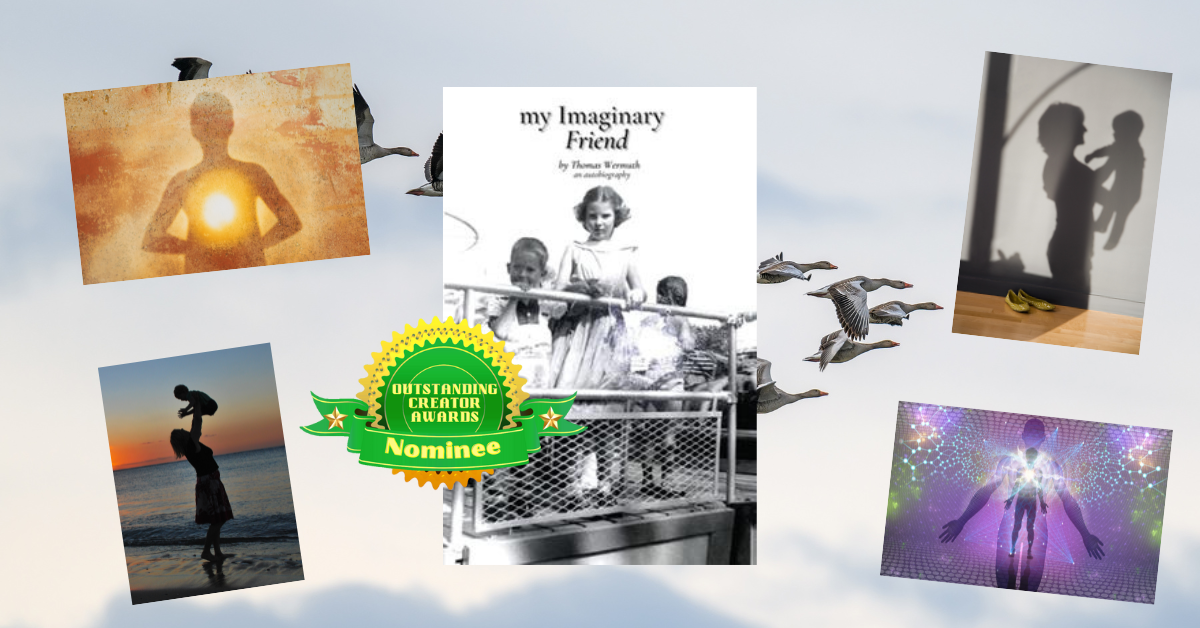|
Score: 89/100 (8.9 out of 10)
My Imaginary Friend is a fascinating and intriguing autobiography by Thomas Wermuth. The book tackles multiple aspects of Thomas and his life including growing up LGBTQA+ (gay) in 1960s America, becoming aware of his possible ESP (spiritual medium) gifts, adopting an imaginary friend as a coping mechanism, and his tumultuous relationship with his mother. Incredibly, despite all of the the unique and bizarre topics we just listed, the most captivating and compelling aspect of this entire book is the author's love-hate relationship with his mother. Let's talk about that a little bit. Thomas's relationship with his mother seems to be at the heart and center of everything else that he goes through including coping with being gay, exploring his ESP, and adopting his imaginary friend. It could be argued that his mother's uneasy, tentative “acceptance” of his homosexuality (if you could even call it “acceptance”) triggers a domino effect of emotions and subsequent events for Thomas. Furthermore, it is his mother's passive-aggressiveness, possible narcissism, and eventual dementia that seem to necessitate Thomas creating and adopting his imaginary friend. As a result, it's likely that Thomas developed what he (and much of the audience) can presume to be ESP—a kind of psychic or spiritual connection with the dead. We see flashes of this ability throughout the book such as when Thomas is able to receive a brief visitation from his grandmother before anyone tells him that she has passed. He is also able to detect his mother's presence with a flight of birds shortly after her death. But going back to the meat of this book... the author's mother is far and away the most interesting figure in this book, even surpassing Thomas and his father. You can tell that there's a whole lot more going on with Mother than what's on the surface. Yes, she's unpleasant and off-putting for much of the book. Yes, she's at least somewhat responsible for a lot of the problems that poor Thomas went through growing up. However, there seems to be some good reasons behind that. It's very possible that many of Mother's ill feelings and negative outlook spring from losing both of her brothers in tragic and unexpected circumstances. You also gradually come to understand why she resents Thomas so much. In fact, both of them say they “hate” each other at one point. Mother had a life before Thomas and before his father (her husband). Mother was married before and had other children, whom she rarely saw (if at all). She hid this painful secret, and you can tell that it was eating her alive. You also come to understand that Mother was suffering from cognitive decline due to dementia. It's painful and sad to see, but it's also interesting to get a different and empathetic perspective of this seemingly troubled person. Here are some great, key quotes from the book: “i believe that everything happens at the perfect time for me what seems like a coincidence is merely just a ‘hello’ from the Universe to pay attention to whatever is going on right then some people might even call it a wakeup call” “...my first real awakening about who i might really be and i hated it i was really afraid of my thoughts and feelings and had absolutely no one i could possibly talk to about it and i hated myself” “...you will never be of service to anyone else if you don’t take care of yourself first. “ “....that made me feel validated. Someone really saw and understood what I had been going through my whole life “ You may have noticed that some of the writing and formatting in these quotes is rough. A lot of the book is like this. Many of the things that should be capitalized (like the beginning of sentences) just aren't for some reason. There are also sometimes weird gaps between words. This book could use some love from a proofreader, editor, and/or professional formatter. However, we appreciated this book for what it was. Check it out on Amazon!
0 Comments
Leave a Reply. |
Archives
July 2024
Categories |

 RSS Feed
RSS Feed